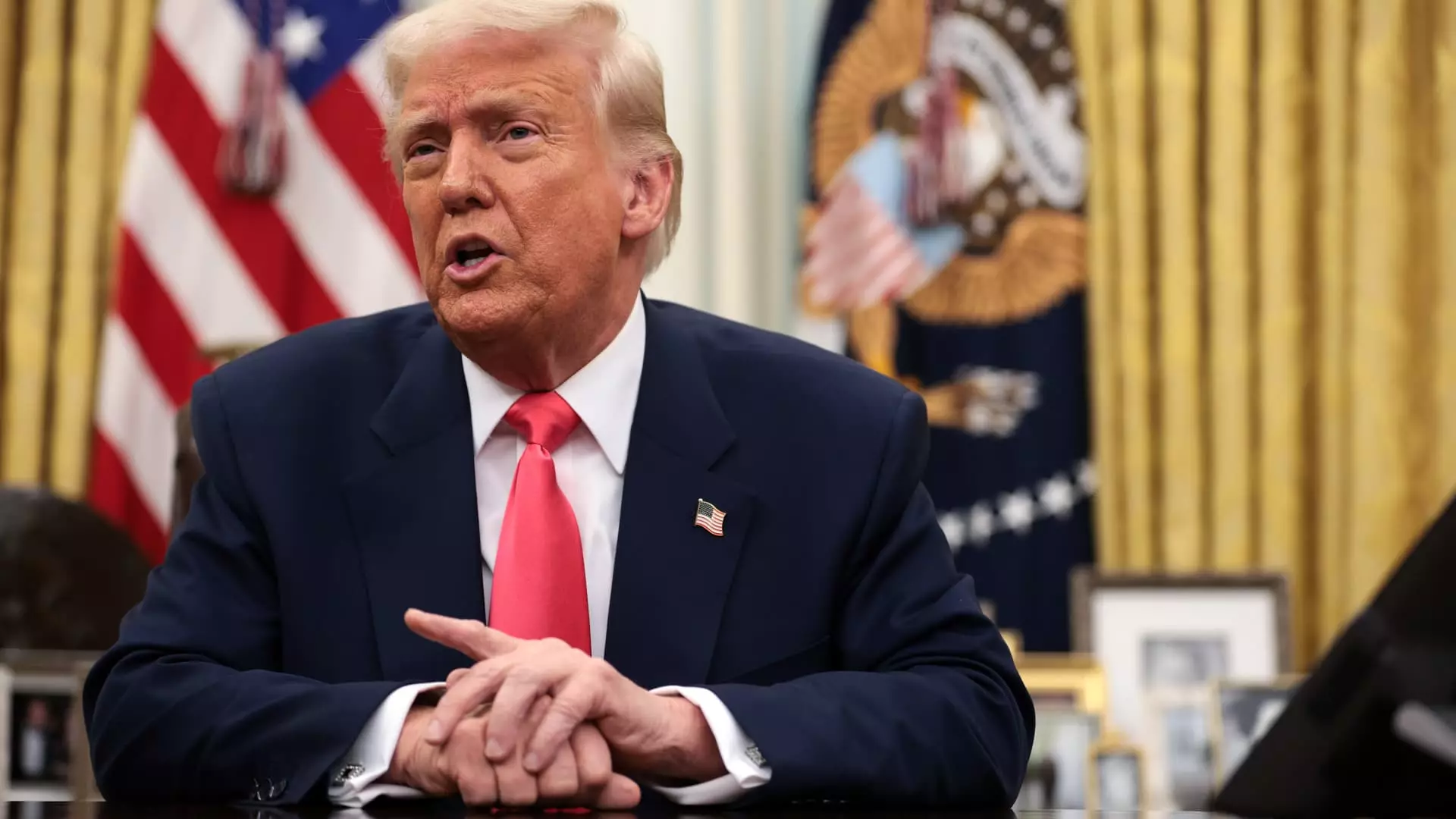The administration’s optimism surrounding tariffs as a means of generating national wealth is a classic case of wishful thinking overshadowing economic realities. President Donald Trump’s assertion that tariffs will make America “rich” clearly reflects a lack of understanding regarding the complexities of global trade dynamics. Reports indicate that White House trade adviser Peter Navarro predicts $600 billion in yearly tariff revenues—an estimation that many economists regard as dangerously exaggerated. A more realistic forecast from seasoned experts like Mark Zandi, chief economist at Moody’s, suggests that the actual revenue might only reach up to $200 billion. This discrepancy signals a substantial gap between the administration’s aspirations and the economic realities facing everyday Americans.
The Economic Repercussions of Reckless Tariffs
The proposed tariffs are not merely a financial gambit; they are steeped in perilous implications for the broader U.S. economy. A comprehensive analysis reveals that tariffs, particularly the proposed 20% hike on imports, could lead to widespread inflation and reduced purchasing power. For the average American, experts estimate the cost of such tariffs could range from $3,400 to $4,200 annually. It’s naive to believe that consumers will simply absorb these costs without altering their consumption patterns. Increased prices will inevitably lead to diminished domestic demand for imported goods, directly undermining the anticipated revenue streams. As consumer spending contracts, companies are likely to face shrinking profits and, consequently, may reduce their workforce in order to cut costs.
The Fallacy of Tariff-Based Relief
The Trump administration’s plan to offset tax cuts using tariff revenues exemplifies a problematic economics strategy that prioritizes immediate gains over long-term stability. With an estimated $4.5 trillion in potential costs associated with tax cuts, the reliance on fluctuating and speculative tariff revenues is inherently risky. If tariffs do not yield the expected revenue—something economists widely anticipate—the fiscal burden will ultimately fall on taxpayers or result in increased national debt. Instead of facilitating growth, this approach may derail the economy, forcing lawmakers to make convoluted fiscal decisions that could further exacerbate domestic issues.
Retaliation and the Cycle of Trade Wars
Hit with tariffs, foreign nations are likely to respond with their own set of tariffs against U.S. goods, creating a pernicious cycle of retaliation that threatens not just U.S. exports but domestic job security as well. If foreign markets cut off access to American products, industries that rely on those markets will be hit hard, causing further ripples throughout the economy. The notion that tariffs can act as a panacea for trade deficits and domestic job creation while simultaneously stirring global tensions is alarmingly naïve. History is replete with examples of trade wars that have led to economic downturns, and the current trajectory threatens to plunge the U.S. into a similar fate.
Tariffs as a Political Strategy
The White House’s tariff maneuvers appear increasingly driven by political motivations rather than sound economic principles. By framing tariffs as a means to revitalize American manufacturing and preserve jobs, the administration seeks to bolster its political standing while neglecting to address the nuanced realities of modern trade relationships. This short-sighted strategy not only undermines international partnerships but also poses a risk to the very workers it claims to protect. Instead of cultivating a stable economic landscape, tariffs could engender deeper divisions within the economy, as various sectors react differently to the imposed burdens.
The Disillusionment of Compliance and Reality
Expecting full compliance with tariff policies is an exercise in futility. Historical precedent indicates that industries will seek loopholes and exceptions, leading to an inefficient and convoluted system of revenue collection. Past tariff implementations have illustrated that exemptions can dilute potential revenue gains, as seen with the “de minimis” exemptions on low-value imports. Additionally, the likelihood of tariffs being easily reversed by future administrations further complicates the promise of stable revenue streams, making it difficult to execute fiscal policies based on unreliable financial forecasting.
In light of these multifaceted challenges, it becomes increasingly clear that the implementation of tariffs rooted in optimism rather than thoughtful economic strategies could have disastrous consequences for America’s economy. As the specter of recession looms, the administration’s approach to tariffs deserves a critical reevaluation, one that acknowledges the intricate web of global interdependence rather than offering simplistic solutions to complex issues. The American economy needs strategic investment and innovative policies that foster growth—not the speculative whims of tariff-based financial forecasting.

